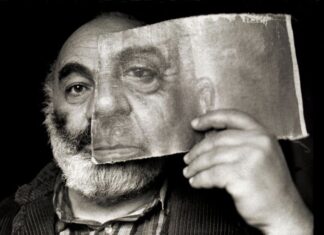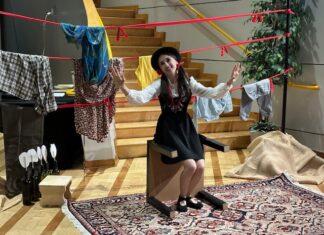By Daphne Abeel
Special to the Mirror-Spectator
The dust jacket for Paul Ignatius’ memoir could not be more apt — it is a montage that displays the American flag as a screen across a family photo of Ignatius’ Armenian immigrant family that pictures his great grandmother, his grandfather and grandmother, his father and an image of himself as a small boy. The photo was taken in 1929.
Ignatius, who served in both the Kennedy and Johnson administrations, becoming secretary of the navy in 1967, has written an autobiographical account of a thriving Armenian family, planted on American soil.
Although Ignatius enjoyed a distinguished public career which began in 1961 when he was appointed assistant secretary of the army during the Kennedy administration, a great portion of the book is devoted to memories and anecdotes of Armenian family life, lived mainly in Glendale, Calif.
This book, an expanded version of what Ignatius published in 2000, chronicles Ignatius’ family history for his children and grandchildren and also the broader Armenian community. As he says in his introduction, “I want my kids and their kids to know more about the Armenians, even though their connection to the ancient land and people is not as intense as mine. My heritage is 100 percent Armenian. For my children, the percentage is half this, and for their children it is only 25 percent… Perhaps these children and their children will feel as I do, that their relationship to a people who have suffered greatly throughout their long history will give them a better understanding of the world around them.”
Ignatius’ maternal grandparents came to the United States in 1906, and his grandfather built a house in a small village called Tropico, eventually incorporated into the town of Glendale. Later, his father also built a house in Glendale and Ignatius relates happy memories of a beautiful apricot orchard in the garden and the sumptuous Armenian meals his father would prepare for guests. It was a more innocent time and Ignatius and his brother and friends enjoyed simple pass times, roller skating or playing roller skate hockey on the cement driveway.









